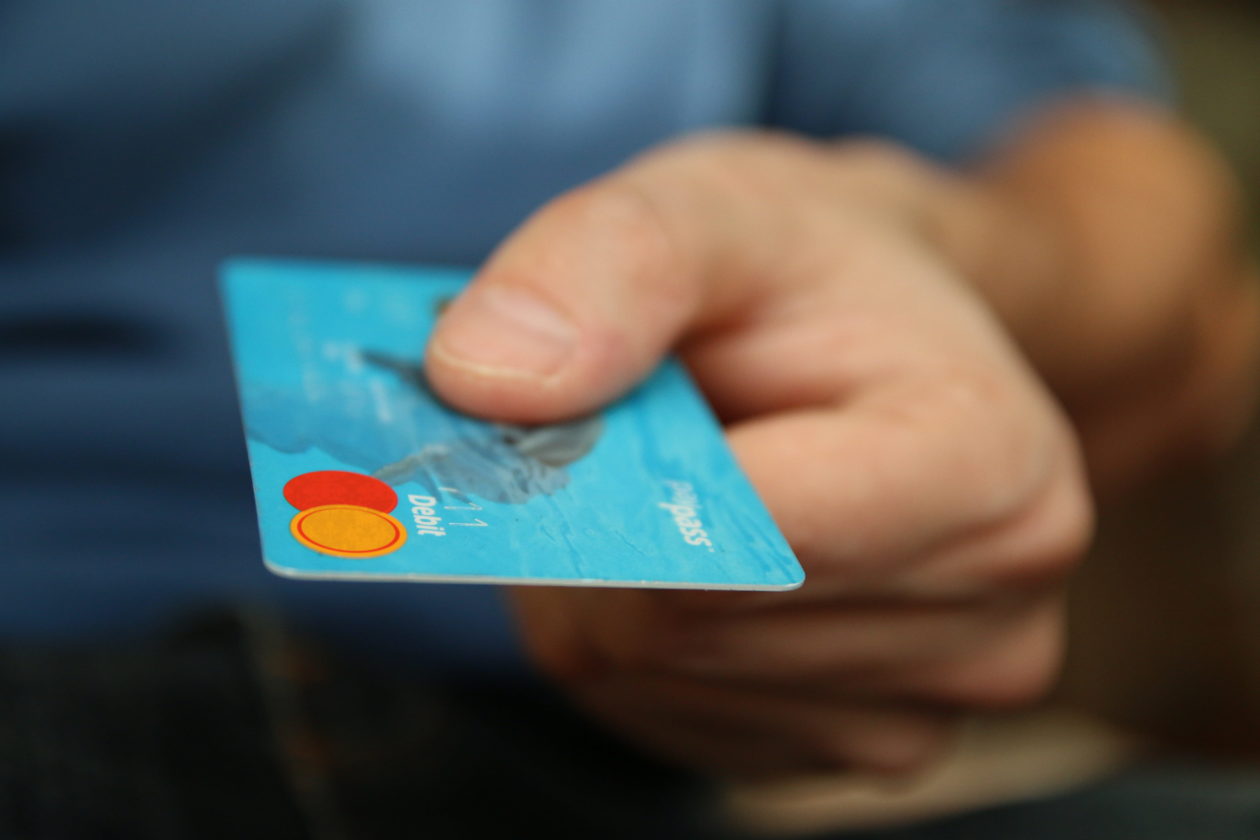Tesla’s Trillion-dollar Triumph — And Its Bond With Bitcoin
In this issue
- Bitcoin’s big buddy: Tesla riding high
- Mastercard and Bakkt: Banking on crypto
- NFTs in China: Not For Trading
From the Editor’s Desk
Dear Reader,
To borrow a phrase, necessity is the mother of reinvention.
As carbon emissions threaten to cook the planet and companies look to burnish their green credentials ahead of the 2021 U.N. Climate Change Conference in Scotland next week, reinvention is very much in the spotlight.
Electric carmaker Tesla, a front-rank low-carbon innovator that’s never far from the headlines, is back in the news this week, becoming the most valuable automobile manufacturer in history by market cap.
To the extent that Tesla can be said to have reinvented the car, Elon Musk, its ebullient founder, has also reinvented himself, having established a position as a market maker in the cryptocurrency space in addition to his other pursuits.
Bitcoin, whose value Musk has exercised considerable influence over, is itself a product of reinvention — a reimagining of money that sparked the digital asset revolution in which we’re now living.
The relationship between the coin and the carmaker is an intriguing one with symbiotic potential. Tesla — which stopped accepting Bitcoin for purchases of its vehicles earlier this year, citing the carbon emissions generated by BTC mining — is looking to start taking the crypto once again if miners increase their use of clean energy to 50%.
BTC rallied a respectable 6.5% in less than 24 hours at the beginning of the new week, although it has since slipped back — possibly as a result of cautionary comments Tesla’s self-proclaimed “Technoking” made about cryptocurrencies. But as crypto miners take steps to green their industry, the prospects for crypto’s utility as a means of payment look brighter — especially if companies as game-changing as Mr. Musk’s smile upon it.
Until the next time,
Angie Lau,
Founder and Editor-in-Chief
Forkast.News
1. Trillion-dollar baby

By the numbers: Tesla — over 5,000% increase in Google search volume.
A week after Bitcoin hit a new all-time high, one of its biggest champions and corporate patrons — electric carmaker Tesla — saw its stock price hit an all-time high, making founder Elon Musk’s company the first automobile manufacturer to attain a market capitalization of more than US$1 trillion. Tesla’s shares closed 12.6% higher on Oct. 25, at US$1,024, bringing the stock’s year-to-date gains to over 40% and lifting the company’s market cap to US$1.29 trillion. Tesla is now the sixth American company to hit a trillion-dollar valuation, following Apple, Microsoft, Google’s parent Alphabet, Amazon and Facebook.
- The carmaker’s stock leapt following an announcement on Monday by car rental giant Hertz that it had ordered 100,000 Tesla vehicles to electrify its fleet. The order was a blockbuster for Tesla, which delivered 241,300 vehicles in the third quarter.
- Musk revealed last Sunday on Twitter that he didn’t hold the memecoin Shiba Inu, images of which he had posted to the social media network many times, but had invested in Bitcoin, Dogecoin and Ether. “As I’ve said before,” he explained, “don’t bet the farm on crypto! True value is building products & providing services to your fellow human beings, not money in any form.”
- Musk said in May that Tesla would stop accepting Bitcoin payments because mining the coins used too much fossil fuel-generated electricity. The following month, he said that Tesla would consider resuming its support for Bitcoin payments once at least half of the BTC network’s hash rate was powered by renewable energy. In a quarterly filing with the U.S. Securities and Exchange Commision in September, Tesla said it “may in the future restart the practice of transacting in cryptocurrencies,” suggesting that it was eying a reversal of its policy.
- Tesla bought US$1.5 billion of Bitcoin in January when the cryptocurrency was valued at around US$35,000, before selling 10% of its BTC holdings later in the first quarter. Tesla currently holds US$1.26 billion of Bitcoin, according to its Q3 earnings presentation.
Forkast.Insights | What does it mean?
Tesla’s stock price breakout comes as bullishness returns to crypto markets. Although the relationship between Musk’s Twitter activity and crypto prices is well-documented, what hasn’t been as noticeable is the electric carmaker’s decoupling from other mega-cap stocks and its alignment with the world’s most popular crypto.
Over the course of the year, analysts have been puzzled by Tesla’s stock performance. The automaker’s share price correlation with FAANG (Facebook, Amazon, Apple, Netflix and Google) stocks has declined. In tandem, its correlation with the price of Bitcoin has increased. What gives?
Tesla has done well this year, finally turning a profit for the first time. This week’s stock price surge came after it struck a deal to sell 100,000 vehicles to car rental heavyweight Hertz. Bitcoin has also performed well, thanks to rising inflation across the world and increased institutional investment.
But what ties Tesla’s fortunes to those of Bitcoin are investors’ perceptions of the carmaker. Tesla is regarded more as a tech company than a car company, attracting investors more likely to buy tech stocks than traditional automotive equities. Alongside this, the expansion of the retail investor market through apps such as Robinhood has allowed people to diversify their investments into a broader range of asset classes. Musk’s own holdings attest to this. Holding multiple types of assets across classes and industries is becoming more common, and Tesla is likely reaping the benefits of attracting a larger and more diverse pool of investors, as is the world’s original cryptocurrency.
2. Crypto in the cards

By the numbers: Bakkt — over 5,000% increase in Google search volume.
Global credit card giant Mastercard announced on Monday that it would be working with digital asset platform Bakkt to allow its customers based in the United States to buy, sell and hold digital assets through custodial wallets. The partnership will allow any of Mastercard’s ecosystem of banks and merchants in the U.S. to issue branded crypto debit and credit cards, and enable consumers to buy, sell and hold digital assets through custodial wallets supported by Bakkt. Mastercard issuers will also be able to offer consumers the ability to earn and spend rewards points in cryptocurrencies in lieu of loyalty points, and convert their crypto to pay for purchases.
- Bakkt Holdings, founded in 2018, went public in a special purpose acquisition company deal last week. Its shares soared more than 100% in the early afternoon on Monday following news of the Mastercard tie-up, prompting a trading halt amid exceptionally high turnover volume. The stock hit a high of US$35.78 on Tuesday before losing more than one-third of its value by the end of the session on Wall Street. Nonetheless, Bakkt remains far above the disappointing valuation of US$8.03 it attracted just a few days after its debut.
- On the same day as the Mastercard deal was announced, global payment services firm Fiserv unveiled a strategic collaboration with Bakkt to offer merchant-facing digital asset services.
- In December last year, Visa partnered with cryptocurrency exchange BlockFi to launch Bitcoin rewards credit cards, the first credit card allowing users to earn crypto by making purchases.
- Mastercard is extending its reach into the digital asset space, on Sept. 9 announcing an agreement to acquire CipherTrace, a company that scans blockchains for illicit transactions.
Forkast.Insights | What does it mean?
Web 2.0 is rightly worried about missing the crypto train, and it’s applying its centralizing logic to ensure it gets a slice of the action. Like PayPal, which launched crypto services last year, Mastercard is trying to leverage its brand to entice people into a new and unfamiliar financial environment.
PayPal built its crypto services as a walled garden, preventing people from taking their crypto elsewhere. Whether Mastercard will try to prevent its customers from doing the same remains to be seen. If it does, it will serve to highlight the growing tension between Web 2.0 and Web 3.0 — centralized control versus decentralized free movement.
Web 3.0 is growing faster than most observers thought it would. The NFT explosion has proved surprisingly effective at converting people to crypto, and it’s why Facebook is launching its metaverse “land-grab.” For Web 2.0, this poses a problem: ignore it and lose out on a growing customer base, or jump in and risk being wrong-footed by crypto’s incredibly dynamic and volatile nature.
Offering custodial solutions to buying and holding crypto is an easy win for Mastercard — the 1.3 billion cards the company currently has in circulation represent a giant pool of potential revenue. The real test will come when those same customers realize crypto can be bought, sold and staked more cheaply elsewhere.
3. When is an NFT not an NFT?

Chinese tech conglomerates Alibaba and Tencent have rechristened their non-fungible tokens “digital collectibles.” The move by the two companies comes against a backdrop of Chinese state media outlets launching increasingly scathing attacks on NFTs and the “hype” surrounding them.
- Alipay, the ubiquitous mobile payment app run by Alibaba fintech affiliate Ant Group, is among the Alibaba businesses with newly renamed NFT collections on its platform. Alipay has been actively rolling out NFT artworks built on its AntChain network, in June and August, selling NFT wallpapers for its payment interface and last month creating NFTs featuring a torch for the 2022 Asian Games.
- Huanhe, an NFT app launched by Tencent in August, has also removed references to the phrase NFTs. A Tencent spokesperson told Forkast.News that Huanhe was a fully compliant platform that prohibits the transfer of digital products between users.
- AntChain clarified in a statement this week that it conducts business involving “digital collectibles” in strict compliance with laws and regulations, and that it allows “digital collectibles” to be freely gifted only between authenticated Alipay users after they have been held by a single user for more than 180 days.
- Although NFTs are not included in China’s recently ramped-up ban on cryptocurrency-related activities, state media outlets are upping the ante in criticizing them. Last month, Securities Times, a sister paper of People’s Daily — the mouthpiece of China’s ruling Communist Party — published an opinion piece slamming NFTs as hype and suggested that digital assets should serve the real economy by tokenizing actual assets.
Forkast.Insights | What does it mean?
As Forkast.News has reported, Beijing has been letting crypto companies know in no uncertain terms that they’re unwelcome in Xi Jinping’s China as it continues to roll back the free-market reforms of an earlier era.
Yet the realization among businesses that there is money to be made in crypto is nevertheless causing friction. Alibaba and Tencent have committed cash to rolling out their NFT platforms to tap the market buzz. Will a simple rebrand and restrictions on resales be enough to keep the authorities at bay?
Beijing hasn’t explicitly banned NFTs — yet. But it has made it abundantly clear that it’s not thrilled that crypto lives on in this form.
Tencent and Alibaba insist that their digital collectibles have no monetary attributes that allow people to earn passively. They also don’t permit the resale of NFTs for a profit, although local media outlets have reported that some of Alipay’s products have stoked speculative trading.
In the race for compliance, NFTs are being gutted of all the features and functionality that made them popular in the first place — being easy to acquire, easy to sell, and, of course, easy to make money from.
Investors have already found ways around China’s punitive approach elsewhere in the digital asset space. How long will it take NFT collectors?


